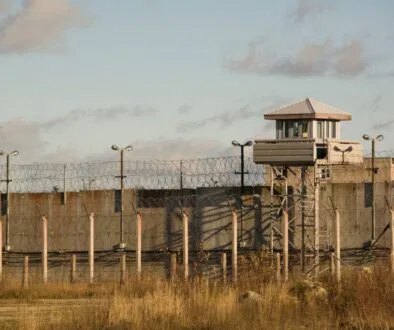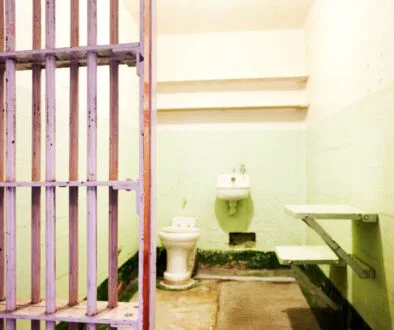Federal vs. State Prison: Which is Better?

Published August 14, 2020
The United States is infamous for imprisoning the most people in the world. For every five prisoners globally, one of them is American. With over 2.2 million inmates, the US incarcerates about 0.7% of its population. To put that statistic into perspective, around 7 in every 1000 Americans is put behind bars.
But not all prisons are the same. There are 122 federal prisons and 1,719 state ones. Where you end up depends on many different factors like where you did the crime and what laws you violated.
When can you be sent to state prison, and when can you be sent to a federal one?
The main distinction is that violation of state laws send you to state prisons, while violation of federal laws can send you to federal ones.
The nature of crimes that violate state laws is generally more violent than the ones that violate federal laws. These crimes can include murder, rape, and gun-related offenses. These are violations done in one state only and are handled by that state’s authorities.
Violations against federal laws, or federal crimes, comprise of crimes committed across state borders and against government institutions and agents. Other violations include white-collar crimes, like money laundering, fraud, and racketeering.
Some crimes can be both state and federal crimes, depending on where they took place. Crimes performed in federal property or Indian reservations will fall under federal crime.
What are the differences in the facilities between the two prisons?
Federal prisons are managed by the Federal Bureau of Prisons, while state prisons are managed by the state government.
State prisons are usually of lower quality than federal ones. This is because state prisons rely on state taxes for funding, which results in inferior management and rehabilitation programs.
Federal prisons are given funding by the federal government, resulting in high budgets. The higher budget allows for better quality facilities, food, and rehabilitation programs.

ADVERTISEMENT
Quality of life
State prisons tend to be far more problematic than federal ones. The American Civil Liberties Union (ACLA) filed numerous lawsuits against state prisons for inhumane treatment, overcrowding, sexual abuse, and racial discrimination. Because many state prisons are poorly maintained, overcrowded prisoners often get frustrated, becoming more violent.
Federal prisons, with their inflated budgets, can provide much better services to their inmates. The instances of federal prisons getting overcrowded are far less prominent than their state counterparts.
The Bureau of Justice Statistics documented the mortality rate in federal and state prisons for the years 2001-2016. The study found that 53,051 prisoners died in state prisons compared to the 5,985 of its counterpart.
Security
State prisons have three security classifications: Minimum, Medium, and Maximum. Federal prisons have five: Minimum, Low, Medium, Maximum, and Administrative. Both prisons are generally isolated in remote areas and have high walls, barbed wire, electrified fences, and guards armed to the teeth.
Inmates are placed in these prisons according to the gravity of their charge. When talking about overall security, federal prisons tend to be the more secure ones. Staff-to-inmate ratio gradually gets higher with the security classification. On the other hand, state prisons experience problems with their security staff being insufficiently-trained, or inadequate in number.
Summary
We recommend any citizen reading this to do their utmost to keep out of the prison system. However, if we had to choose between either federal and state prisons, we have to go with federal ones. Issues arising from overcrowding, underemployed staff, and inadequate facilities face a far lower risk than in state prisons. While better in virtually every aspect, federal prisons are not without problems. Violence and gang-related conflicts plague both prisons, issues that the authorities should address. But as long as mass incarceration remains a problem, the prison system cannot progress.
Reduce Your Jail Call Costs By Up To 90% Per Minute With GlobalTel
GlobalTel’s inmate calling service lowers jail call per minute rates by up to 90% for jail calls from US facilities. Sign up now and use the special jail call phone number we create for you to eliminate the long distance jail call fees. Try GlobalTel for only $45.99 for 90 days. Make US/domestic and international jail calls at the local rate and stay connected to your incarcerated loved ones for less. Learn more about how to sign up for calls from inmates here.

This Content Is Fact Checked
Our esteemed team of specialists has thoroughly validated the accuracy of this information. Discover further details about the rigorous editorial guidelines for our website here.
ADVERTISEMENT

About The Author
Judy Ponio is a professional writer for the GlobalTel blog. She works hard to ensure her work contains accurate facts by cross checking reputable sources and doesn’t settle for less. Her passion for telling stories about true crime and criminal justice has allowed her to create hundreds of articles that have benefited millions of people.




